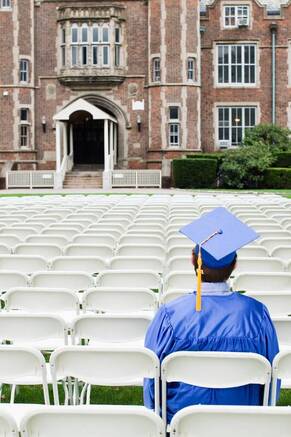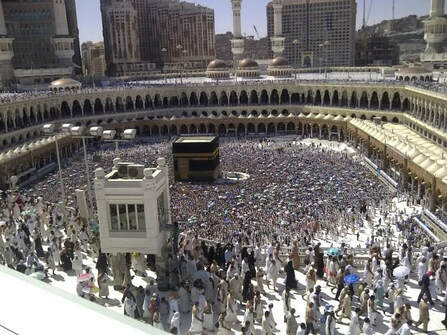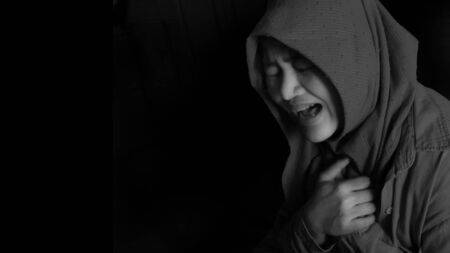 Who would ever imagine we would have gotten to this point: online learning for every student in the United States of America. As an educator for 17 years, I must say this is one of the most difficult times I’ve experienced. According to a NewsWeek article, a group of NWEA researchers came up with two possible scenarios when discussing the effect of the pandemic, “… data to project growth trajectories for the students under two scenarios: a "melt," in which students basically gained no ground during the school closures; and a "slide," in which students lost ground academically during the closures at rates similar to those seen over the long summer break.” (Sparks, 2020). This might sound discouraging to some parents; however, it also should not deter them from trying to lessen any negative effect a prolonged closing might have on their children returning to school in the fall, Inshallah (God willing). Being an educator, I expect for some of my students to have a summer slide due to a number of different reasons: traveling, lack of supervision, parents’ jobs, mental break, etc. I used to suggest various activities to parents that students can complete during their summer break:
Taking this model into account, we can plan to continue learning during the summer time to ensure that our children do not have a huge summer slide once we return in the fall. Some ideas to continue learning are:
Dr. Khaleeqa Bruce Ed DMy name is Dr. Gloria Bruce. I have been in education for 17 years, with the last five years as an Assistant Principal at Al-Falah Academy. I am a firm believer that learning is a continuous journey and I am always looking in areas I can improve my craft.
0 Comments
 “Come on, we’re going to be late.” My mother repeated for the millionth time. We were headed to one of her friend’s son’s graduation. I didn’t think he’d mind if we were late after all, it wasn’t like we were family. But we piled into the car and headed towards the Infinite Energy Center nevertheless. Up until this point I had only seen small graduations as I had attended a small Islamic school in a shopping plaza. This graduation was being held in the same place that Demi Lovato concerts were held. So I was a little anxious about going. Once we arrived my mother’s friend handed us our tickets. It felt surreal to think one day I might have tickets to pass out, to have people cheering my success and accomplishments. We took our seats and waited for his name to be called. Name after name was called until his was said and we cheered and hollered. I doubted he could hear us but that didn’t keep us from enjoying his success too. This year I was robbed of this opportunity. COVID-19 took all my “first lasts”. There was no Senior Breakfast. No epic Senior prank wars. No Senior spirit week. No Senior skip day. No Prom. No Senior Night for those of us that played spring sports. But most of all no graduation. No final goodbye after years and years of critical thinking prompts and standardized testing. Corona Virus has forced a class of students to seize the moment. We’re never guaranteed tomorrow, so we have to make use of today. My heart hurts as I think of all the ways I could have said goodbye to my teachers, classmates, and friends. Sometimes I imagine a year where “outside” is open and everything went as planned. But we plan and our Creator plans. I may never understand the meaning of this loss, but I do know that everything happens for a reason. And the class of 2020 will forever be remembered as the ones who finished strong. Tariqah Abdul-MalikTariqah is a member of the class of 2020. She plans to major in prelaw and loves writing, reading, soccer, and basketball.  An enormous catapult propelled a young Ibrahim (AS) toward a searing fire; a towering representation of the outside world’s distaste for his devotion to the one true deity. The catapult was needed because this fire was too intense for his idol worshipping enemies to approach, though they were the ones that built it. As he hurled toward the inferno, death seemed imminent to the thrilled onlookers, and likely to Ibrahim himself. But similar to many who have faced death since him, time slowed down for the Friend of Allah (SWT). While repeating affirmations of Allah's Supremacy and Oneness, the seconds became minutes, perhaps even hours. Because Ibrahim found enough solitude and peace within himself in these fleeting moments to receive affirmation from his Creator. It came in the form of the angel Jibril, asking Ibrahim what he needed. Ibrahim replied to Jibril that he needed nothing from him. But Allah’s interjection can be found in Surah Anbiyaa, verse 69 where He conveys: “We said, ‘O fire, be cool and safe for Ibrahim!” So the peaceful solitude that Ibrahim enjoyed while being flung toward raging flames increased when he landed inside of said flames. His response was not at all like mine would have been. I would not have been able to run out of that fire and gloat to my would be murderers fast enough. Not Ibrahim. He simply said, “For me Allah suffices and He is the best disposer of affairs” and enjoyed a few more moments in the soothing flames. This literal grace under fire is what the Father of Prophets displayed time and time again, often in times of extreme isolation. This quality became a trend within his progeny, the greatest examples in the Qur'an. Prophet Yusuf (AS) experienced extreme isolation twice in his lifetime. In the well after incurring the jealousy of his brothers and in prison after invoking the lust and subsequent shame of a powerful woman. Prophet Yunus (AS) experienced it in the belly of the beast after giving up on the mission that was prescribed to him by The One Who Heals. Maryam’s entire life, a testament to chaste abstinence and worship, shows us that our Sisters can reach the heights of piety and produce greatness without the aid of anyone other than Allah. Much of her life was lived in isolation. And of course our beloved Muhammad SAW often took long walks to be alone with nature before and after he received revelation. It was during one of these excursions, inside the cave of Hira that the angel Jibril first gave him Allah’s command to “Read!” Later, during a pivotal battle in which he was wounded, Muhammad took some time to heal in the cave of Uhud. Socialization as a Crutch We live in a time where it is very easy to be a face in the crowd of Muslims, whether in person, or online. There is no shortage of scholars and Imams with the gifts of knowledge and speech. If we were to relate our experience to a prophetic one, it would that of Sulaiman, the prophet who ruled the entire world and owned a majority of its riches. He spoke many languages, including those of the birds, the jinn and even the ant. For many of us though, we are the ant in this scenario. We use the ease of socialization as a crutch, comfortably living in the shadows of great leaders, picking and choosing which beautiful coattail to ride on, accepting whatever wisdom they deem necessary for us to learn, never feeling the need to seek knowledge on our own. Never searching within. The Most Important Ramadan of Our Lives Allah has catapulted each of us toward facing our own personal jihad. For some of us, that may be the fire of rage or drug abuse. For others it may be the worship of false idols. Or prison. Or the cave of our repressed urges or memories. We may realize that we have neglected our true calling and been swallowed whole by the beast that is this world, neglecting our piety and relying on man to do for us what only we can do for ourselves with the mercy of Allah. For the first Ramadan of our lives, we cannot count on our brother to Read for us during tarawih. For the first time we cannot bury ourselves in work in order to lose track of time until after Asr prayer. For the first time, it is undeniable that Allah is giving us the time to heal from this pivotal battle that we have been fighting as Friends of Allah in hostile territory. That is why this is the most important Ramadan of our lives. May we all accept the challenge with the grace of Ibrahim and say with our hearts and actions, “For me Allah suffices and He is the best disposer of affairs.” Masood Abdul-HaqqMasood Abdul-Haqq is business strategist, speaker and writer. A graduate of the University of Central Oklahoma with a degree in Business Law, Masood also teaches Qur’an and serves as Chairman at his local masjid. Masood resides in Oklahoma City with his wife and three children.  The Covid-19 Pandemic has taken the world by surprise. We are being flooded with information regarding its risks, how it can be passed on to others, and where we should and should not go. It feels as if overnight our lives are no longer in our control. That sense of powerlessness can easily increase our anxiety. Anxiety can be described in a variety of ways but it generally feels like an uncontrollable nervousness that makes it challenging to be at ease. Its side effects can be displayed not only through mood and behavior but also affect your heart rate and can have a negative impact on your health. Although we are currently in an uncertain time there are ways to manage that uneasy edge. Here are 5 ways to manage your anxiety while at home:
Maryam Miller DSNPMaryam Miller is an Atlanta native who currently resides in Decatur Ga with her husband and two children. She received her bachelors in psychology and Masters in Community Counseling. She believes in the value of hard work while recognizing the importance of setting boundaries and managing life’s stressors. |
Don't miss another edition of A Message from Makkah. Click the button below to join our mailing list
Contact Us for Advertising Opportunities!
Archives
January 2023
Categories
All
Our Sponsors |
Makkah International Institute
 RSS Feed
RSS Feed